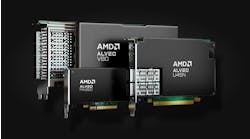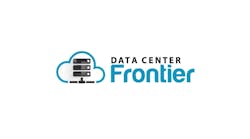Overcoming Supply Chain Roadblocks: How to Avoid Disruptions in Your Data Center
Between semiconductor shortages and unprecedented logistical challenges, delayed lead times for original equipment manufacturer (OEM) data center systems have become the norm.
To rectify the situation, manufacturers are increasing semiconductor chip production. However, due to the complexity and expense of their production process, the semiconductor shortage won’t be resolved soon. As a result of the scarcity, many OEMs have reported extended lead times from six months to several years.
Instead of waiting for OEM-new systems, IT professionals are turning to the secondary market for the systems they need. Companies are learning that leveraging recertified and refurbished equipment drastically decreases lead times — turning months or even years into just weeks while offering significant cost savings.
What terms should you know when considering secondary market hardware?
Although “secondary market” may sound ominous, it’s a reliable source to find and configure custom-built data center systems. Third-party maintenance (TPM) and hardware providers proactively purchase systems companies no longer use through services such as IT Asset Disposition (ITAD) and other buyback programs. In addition to acquiring equipment through these programs, hardware providers source systems through a large vendor network that can be purchased at wholesale costs.
As you widen your search, it’s helpful to understand the following commonly used terms.
OEM new: New hardware that has never left the OEM facility and is sold directly by the OEM.
Recertified: Unused hardware that has left the OEM facility. Even though the hardware has yet to be used, it can no longer be labeled “new” due to leaving the OEM facility. This hardware goes through a recertification process at the OEM factory level and becomes available for purchase to resellers and wholesalers at a discounted rate.
Refurbished: Lightly used hardware that has been rigorously tested, reconfigured, and updated before being sold. On average, refurbished hardware is only one to three years old – allowing customers to purchase reliable, reconfigured, and custom-built systems without the extended lead times.
What should you look for in a TPM or hardware provider?
Transparent testing process
A reputable provider should be transparent about its testing process. When considering your equipment options, make sure to inquire about their testing process. At Service Express, our team completes various quality tests that include the following steps:
- Visual inspection
- Wipe all data to NIST800.88 standards
- Clear any existing user configurations
- Diagnose and run quality checks
- Update firmware to the latest supported revisions (if needed)
Stand behind their hardware quality and reliability
Not all hardware vendors provide maintenance to customers. That’s why I recommend working with a company that also provides data center maintenance. This way, the company stands behind the quality of its systems since they are providing support.
Work to meet your needs with consultative support
Not every system is one-size-fits-all. Working with a provider that comes alongside you to create a custom-built solution is critical. This grants the flexibility to create a system to the exact specifications and requirements to meet your data center needs.
Say goodbye to delayed lead times and delivery dates
You may think not purchasing hardware directly from the OEM is risky business. The reality is there are alternative options for custom-built systems than you may think. If you need updated equipment, fast, working with a TPM or hardware provider might be the right solution to meet timeline and budget demands.
Brett Williams is the Hardware Sales Manager at Service Express. Service Express is a data center solutions provider specializing in global multivendor maintenance, cloud, managed services, hardware solutions and more. Learn more about how Service Express can help your data center overcome supply chain roadblocks.






